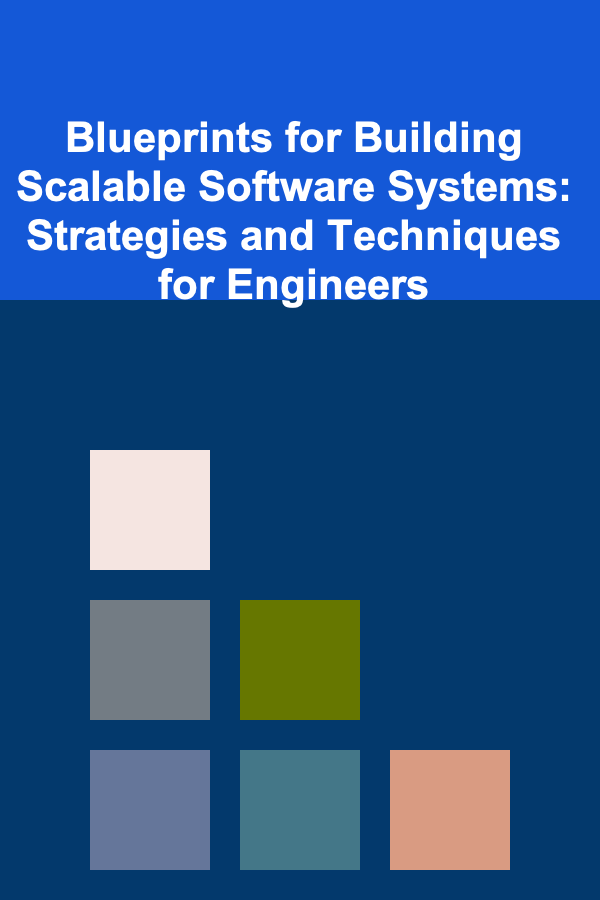
How Renting Equipment Instead of Buying Helps You Avoid Maintenance Costs
ebook include PDF & Audio bundle (Micro Guide)
$12.99$5.99
Limited Time Offer! Order within the next:

In today's fast-paced business world, companies are constantly looking for ways to reduce operational costs while maximizing efficiency. One of the significant expenses that businesses face---whether in construction, manufacturing, IT, or other industries---is the cost of owning and maintaining equipment. While purchasing equipment may seem like a good long-term investment, the associated maintenance costs can quickly outweigh the initial purchase price.
In this actionable guide, we will explore why renting equipment instead of buying it can be a strategic move to avoid maintenance costs and improve your bottom line. From mitigating repair expenses to eliminating the headache of upkeep, renting offers several compelling advantages over purchasing. Let's dive into how renting equipment can help you save money and streamline operations.
Avoiding High Maintenance and Repair Costs
One of the primary reasons businesses choose to rent equipment rather than buy it is to avoid the ongoing costs associated with maintaining and repairing machinery. When you purchase equipment, you're not only responsible for the initial investment but also for all maintenance tasks throughout the life of the equipment. These include:
- Routine servicing: Even the best-maintained machines require regular checkups to ensure they function optimally.
- Repairs: Over time, equipment breaks down, and repairs can be costly.
- Replacement parts: Finding and replacing parts, especially for older models, can be expensive and difficult.
When you rent equipment, these concerns are typically taken off your plate. Most rental agreements include full maintenance coverage, meaning the rental company will handle all maintenance and repairs at no extra cost. If something goes wrong, the rental provider is responsible for fixing it, which eliminates unexpected costs and the need for in-house technical expertise.
Example: Construction Equipment
Consider a construction company that needs a crane for a specific project. If the company buys the crane, they must account for the regular servicing and potential repairs throughout its use. If a part breaks down mid-project, it can halt work and lead to delays. In contrast, renting the crane ensures that the rental company handles maintenance and offers replacement equipment if necessary, keeping the project on track and within budget.
Eliminating Depreciation Costs
Another often-overlooked expense associated with owning equipment is depreciation. When you purchase equipment, its value decreases over time, which affects your company's balance sheet. This depreciation is not just an accounting issue---it can also affect the resale value of the equipment.
By renting equipment instead of buying it, you avoid the depreciation cost entirely. When you rent, you only pay for the duration of time that you use the equipment. This means you don't have to worry about the equipment losing value or having to sell it at a reduced price when it's no longer needed.
Example: IT Equipment
In the case of IT equipment, such as servers or laptops, technology evolves rapidly. A piece of equipment that is considered cutting-edge today can be outdated in just a few years. By renting, businesses can avoid being stuck with outdated technology and the associated depreciation. Once the rental term ends, you can easily switch to the latest models without worrying about the lost value of the old ones.
Predictable Costs and Budgeting
Owning equipment often leads to unpredictable expenses. Not only do you have the upfront cost of purchasing the equipment, but there are also hidden costs, such as maintenance, insurance, storage, and financing charges. These costs can vary year-to-year, making it difficult to plan your budget effectively.
Renting equipment, on the other hand, allows for more predictable and manageable expenses. Rental agreements typically involve fixed monthly payments, meaning you can plan your budget with certainty. The rental company takes care of additional costs like servicing, insurance, and storage, so you won't be blindsided by unexpected charges.
Example: Event Planning Industry
In the event planning industry, businesses often need to rent equipment like sound systems, lighting, and projectors for specific events. Renting allows them to budget for the exact equipment they need without the uncertainty of unexpected repairs or maintenance costs. They know the cost upfront, and once the event is over, they return the equipment, avoiding long-term ownership costs.
Flexibility and Avoiding Long-Term Commitments
Not all businesses need equipment year-round. For many industries, equipment usage is seasonal or project-based. Purchasing equipment for occasional use leads to wasted resources and storage fees when the equipment isn't in use. Additionally, the cost of ownership may not justify the limited usage of the equipment.
Renting equipment provides flexibility, allowing businesses to acquire equipment only when necessary and return it once the project is completed. This eliminates the burden of storing unused equipment and the associated maintenance costs that come with owning equipment you don't use regularly.
Example: Landscaping Services
Landscaping businesses often require specialized equipment, such as lawnmowers, trimmers, and blowers. Instead of purchasing and maintaining a fleet of equipment year-round, many landscaping businesses opt to rent only the equipment they need for specific projects. This approach ensures they don't incur maintenance costs for equipment that is idle for most of the year.
Access to the Latest Technology Without the Risk
As technology advances, older equipment becomes less efficient and harder to maintain. By renting equipment, you have access to the latest models without the financial risk of owning outdated machinery. Rental companies frequently update their fleets to include state-of-the-art equipment, so you can always work with the most efficient and technologically advanced tools available.
This is particularly important in industries where the latest technology can significantly impact productivity, efficiency, and safety.
Example: Film Production Industry
In film production, having access to the latest cameras, lighting, and sound equipment is critical to producing high-quality content. However, purchasing such equipment can be prohibitively expensive. By renting, production companies can use the best equipment available for each project without worrying about the ongoing maintenance costs or the need for frequent upgrades.
Minimizing Liability and Insurance Costs
When you own equipment, you are responsible for insuring it. Depending on the type of equipment and its value, insurance premiums can be costly. Additionally, if the equipment breaks down or is involved in an accident, you are liable for the repairs, which can result in significant out-of-pocket expenses.
With rented equipment, the rental company typically covers the insurance and liability, which reduces your risk. Most rental agreements include insurance as part of the package, and if the equipment is damaged or lost, the responsibility lies with the rental company, not with your business.
Example: Heavy Machinery in Mining
In industries like mining, where large machinery is required, the risk of damage is high. Renting instead of owning reduces the liability concerns, as the rental company often takes on insurance coverage for the equipment. This lowers the risk and ensures that your company isn't left with an enormous financial burden if the equipment is damaged or destroyed.
Conclusion
Renting equipment instead of buying it is a powerful strategy for businesses looking to avoid the hidden costs of ownership, particularly maintenance and repair expenses. From eliminating depreciation to offering more flexibility and predictable costs, renting allows companies to focus on their core operations without worrying about the upkeep of expensive machinery.
By leveraging rental agreements, businesses can gain access to high-quality, up-to-date equipment without incurring the risks and financial burdens associated with ownership. Whether you're in construction, IT, event planning, or any other industry, renting can provide a cost-effective and practical solution to meet your equipment needs while keeping maintenance costs in check.
Ultimately, renting offers the freedom to scale operations, optimize budgets, and maintain a competitive edge by using the best tools without the long-term commitment of ownership.

Blueprints for Building Scalable Software Systems: Strategies and Techniques for Engineers
Read More
How to Build a Family Puzzle Challenge
Read More
How to Choose the Right Insurance Coverage for Your Life Stage
Read More
How to Create a Checklist for Post-Meeting Follow-Up
Read MoreHow to Create a Personal Finance Dashboard for Better Tracking
Read More
How to Use Video Marketing to Showcase Your Dropshipping Products
Read MoreOther Products

Blueprints for Building Scalable Software Systems: Strategies and Techniques for Engineers
Read More
How to Build a Family Puzzle Challenge
Read More
How to Choose the Right Insurance Coverage for Your Life Stage
Read More
How to Create a Checklist for Post-Meeting Follow-Up
Read MoreHow to Create a Personal Finance Dashboard for Better Tracking
Read More